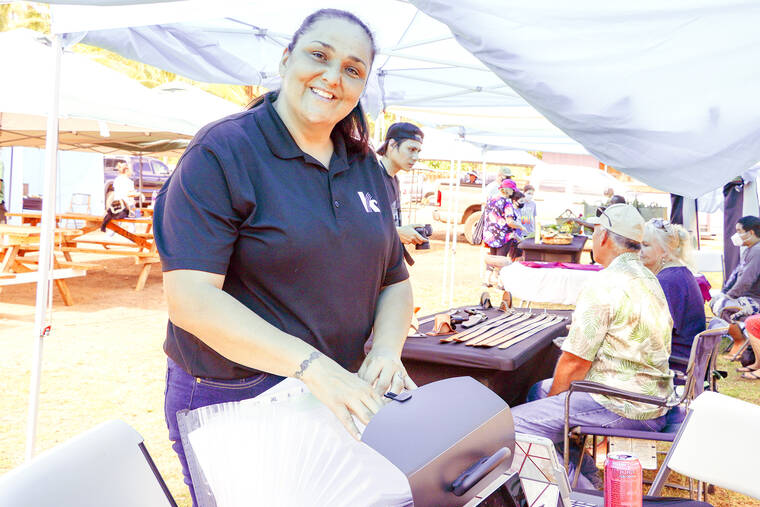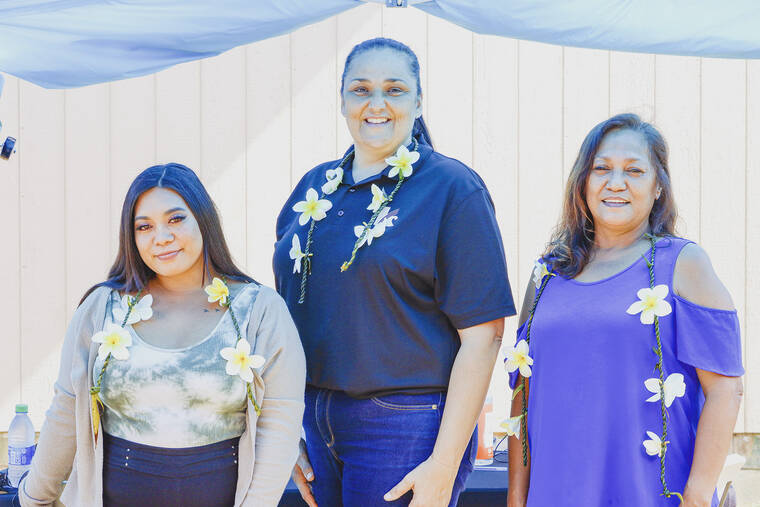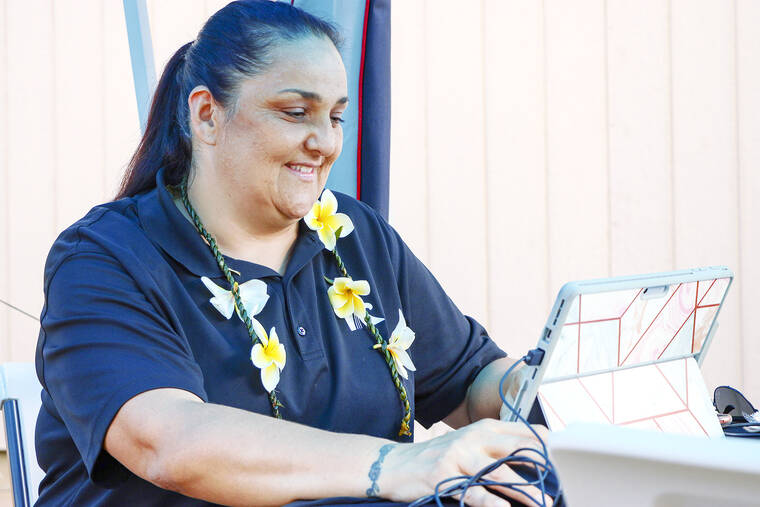LIHU‘E — Over $17 million in funding has been paid out or approved to nearly 1,600 local households nearly one year since the county’s Coronavirus Rental and Utility Assistance Program kicked off.
Just under $2 million for direct assistance to residents remains in the program’s coffers.
But CRUA is not over.
The county and its administrator, Kaua‘i Federal Credit Union (formerly Kaua‘i Government Employees Federal Credit Union), anticipate a second round of funding sometime this spring.
KFCU personnel have distributed $17,366,378 to 1,592 households since May 2021, as of Feb. 25.
“I think we’ve done really good so far. I think we can always do better,” the credit union’s Community Development Officer Dana Hazelton told The Garden Island. “… There is still a ton of people who do not know about our program.”
Hazelton, Program Manager Bonnie Howard and their team attend community events to promote CRUA, which is available to most renters who experienced financial hardship as a result of the coronavirus pandemic.
They also visit hotels and businesses to sign up eligible employees, and are seeking a full-time community-outreach specialist.
However, misconceptions, misplaced shame and wary landlords are among factors that have stymied their progress, according to Hazelton.
“I would really love people to understand that this is for working people … This is for 80% of the area median income,” she said. “80% is high. If you’re a single person, $57,100 is the limit that you can earn (to qualify for CRUA).”
CRUA money can also go to renters whose greatest hardships are behind them.
This means individuals who lost jobs or hours due to COVID-19 since the start of the pandemic in 2020 but have since regained full employment are still eligible.
Increased expenses, like the purchase of face masks, sanitizers or internet for distance learning or working, may also help households qualify for the aid.
About 75% of CRUA applications are accepted. Most denied applications to the renters’ program are filed by homeowners, according to Howard.
‘Everybody needs the help’
The program is funded by the federal Consolidated Appropriations Act. The federal American Rescue Plan Act will fuel its forthcoming, second round of funding.
“There’s no shame in applying for these funds, because this is our money. This is what it’s for,” Hazelton said. “It’s to alleviate the burden of our high cost of living due to the fact that we are going through a pandemic and we have been interrupted economically.”
John Gordon, a former executive chef at two Kaua‘i restaurants, agrees with Hazelton.
He made a combined six figures before the pandemic, then was let go from both eateries.
“Once everybody was getting hired back, I was told they couldn’t afford me anymore,” Gordon said in a recent interview. “I had to go back out into the labor force … I haven’t been able to come close to half of what I was making before.”
Gordon and his longtime partner, Josie, prepared to leave their now-unaffordable home and enter the island’s dire housing market.
That’s when they learned about CRUA. The couple applied and were accepted.
“They’ve literally kept me in my house,” Gordon said.
The program also gave Gordon “the guts” to make a big decision.
Unable to find the job he was looking for, the Kaua‘i-raised chef has opened his own restaurant: Table at Po‘ipu, in The Shops at Kukui‘ula mall.
“I know a lot of people, including myself, we don’t want to ask for help,” Gordon said. “But during a pandemic time like this, everybody needs the help … We need to jump on that.”
Landlords hesitant
CRUA participants can receive rental assistance for 12 months or more in certain cases (the program only covers utility payments in arrears, unless utilities are included in a participant’s rent payments).
Landlords and property managers receive three months’ worth of future rent at a time. Despite these guaranteed lump-sum payments, some are disinclined to work with the program.
“I think there’s more work for them upfront, just the paperwork,” Hazelton said. “And there’s a misconception that, ‘If my tenant is still applying for this, why can’t my tenant pay?’ There seems to be a little bit of stigma.”
Landlords operating illegal rental units are also wary of federal funds because they don’t want to claim income, Hazelton explained, noting the rental- and utility-assistance program keeps all information private.
CRUA applicants are not disqualified if they live in an illegal rental unit with no formal lease agreement. They just need to demonstrate they live where they claim to and pay what they claim to.
This means applicants’ landlords must fill out a verification form, confirming their tenancy and rent rate.
Hazelton and Howard believe landlords’ hesitancy has lessened over time, as a rule. But some landlords still refuse to cooperate.
“Some tenants don’t want to jeopardize their housing by taking these funds because their landlords are like, ‘Absolutely not – I don’t want this money from the government,’” Hazelton said. “It’s hard … because those tenants really don’t have the money.”
Ashley Yoshimori, a property manager at the Kalepa Village affordable rental community in Hanama‘ulu, was introduced to CRUA last July.
Since then, she refers tenants to the program if she finds they’re behind on rent.
Yoshimori believes every person she’s recommended for CRUA has applied.
“All I have to do is a verification form,” she said. “It’s just a two-page form that’s really easy to fill out … I send that off, and they’ll send me a letter if they were approved.”
‘Band-Aid the problem’
Both Hazelton and Gordon, speaking separately, described rental and utility assistance as a temporary salve to Kaua‘i’s ongoing housing crisis.
“We can run rent relief and go, ‘OK, we’re just going to Band-Aid the problem,’” Hazelton said. “But if the problem is never going to get fixed, we’re not going to be able to run rent relief, because our own people are not going to have a place to live.”
Hazelton claimed her office receives three or more calls per week from panicked residents unable to retain housing on Kaua‘i.
Gordon, like Hazelton, noted the housing crisis has also exacerbated the island’s labor shortage.
“There’s no affordable housing for us to live in,” the chef said. “Even being an executive chef with a six-figure salary, I was still barely scraping by to survive. That’s just ridiculous.”
•••
Scott Yunker, reporter, can be reached at 245-0437 or syunker@thegardenisland.com.








